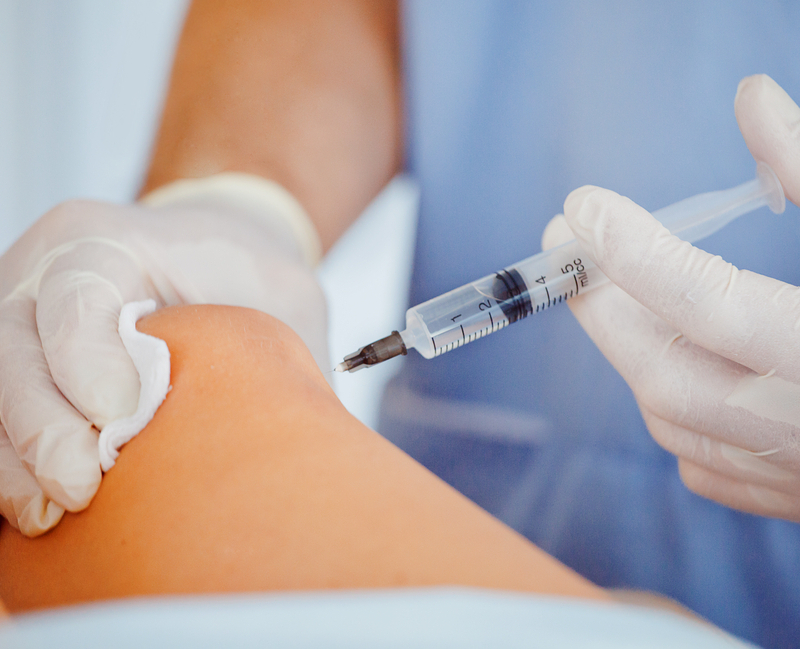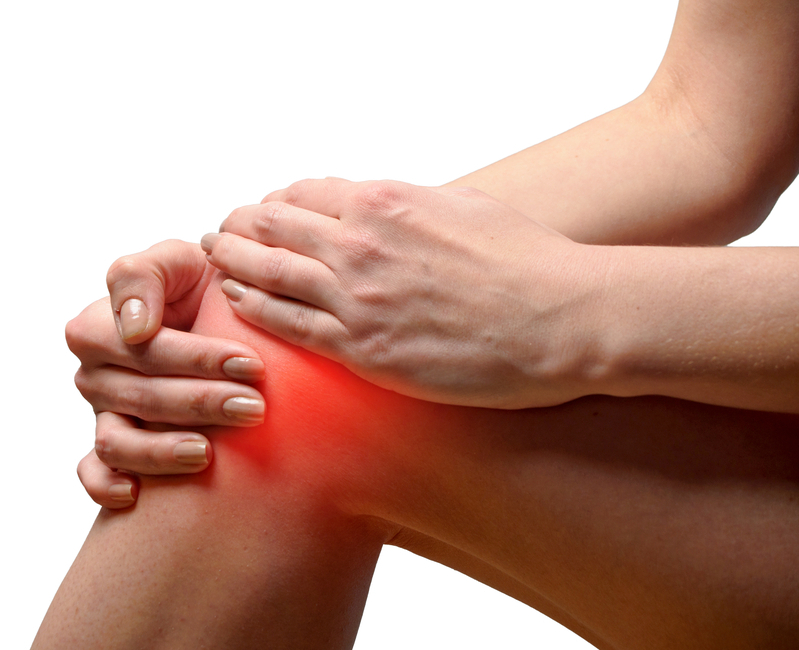This is a question asked by many patients who have undergone knee surgery and still haven’t found any relief. Recovery from surgery can take several months, and if you have soreness, inflammation, or swelling in the treated area, it is not unusual. This can be because of edema, which is a psychological response to a chemical imbalance within the tissues and cells of the body. Surgical interventions can put a lot of mechanical stress on the tissue.

Knee replacement is a commonly performed orthopedic surgical procedure. It is done when the knee joints are worn out as a result of arthritis. The orthopedic doctor for knee pain removes the worn-out cartilage and shapes the ends of the bone. Then a metal implant is fit over the ends of the bone, and a plastic spacer is inserted between the metal implants.
While the surgery may be a success, in order to allow a smooth and pain-free movement of the knee joint, the patient has to go through rehabilitation and therapy. This is because your body is getting accustomed to the artificial part, and it will need some time to accept the implant.
On the other hand, there are chances that even after the completion of rehabilitation, the patient may feel immense pain or any discomfort in the knee. The specialist doctor for knee pain suggests that the reasons for dissatisfaction are obvious – bone fracture around the replacement, postoperative infection, or pain around the newly replaced joint. As per the Bone & Joint Journal, up to 20% of patients are not satisfied with the outcome following total knee replacement.
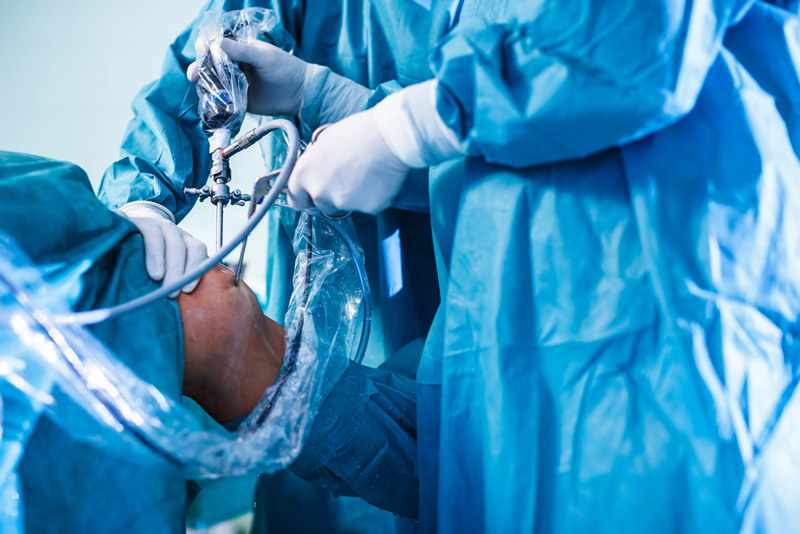
Before you search the best doctor for knee pain near me, it is important that you understand the root cause of the pain even after 6 months of surgery. This is extremely important as you would want yourself to be aware of things regarding the surgery before you get any other medical attention.
What causes knee pain even after 6 months of surgery?
The pain management doctors in Brooklyn New York, say that the primary step in finding a solution to constant knee pain is to first identify the cause of pain. Without knowing what is causing the pain, it is extremely difficult to pitch a suitable treatment. With that said, here are the most common causes of persistent knee pain after surgery.
- Alignment Problems: A poorly aligned knee implant may not function well, irrespective of its brand. A defective implant can cause some serious damage to the treated knee. This can be because of a manufacturing error or an error in computer navigation.
- Kneecap Problems: Kneecap or patellofemoral problems are one of the common reasons causing pain after knee surgery. During rehabilitation or in your day to day activities, any body movement that requires the use of the knee puts significant pressure on the kneecap.
- Infection: An infection in the operated knee is a worrisome concern. If you feel increased pain most often, it could be a sign of an infection. It is important to diagnose the symptoms early on because delay in treatment can be technically challenging, even for a skilled surgeon.
- Loosening of the Implant: If the implant is not properly fitted, it may lose its hold on the bones. This can cause severe pain. On the other hand, over the years, the implant tends to lose its hold on the bones. This is often the primary cause of pain, years or decades after the surgery.
What are the common diagnostic signs?
The doctor for knee pain will take several steps to examine your pain. He/she will talk to you and discuss the pain. How you describe your knee pain will help the doctor for pain management in New York in making an accurate diagnosis.
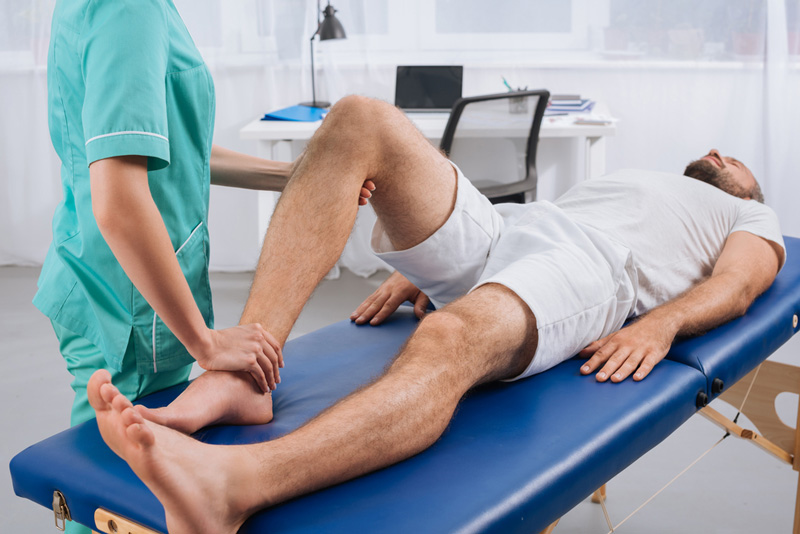
It is common to experience start-up pain (pain while rising), and it usually goes away within a few months after surgery. If you experience any other type of pain, it is possible that you have a more serious condition. The doctor will try to find the exact location of the pain and the timing as well to pinpoint the underlying cause. The following are some common diagnostic signs that you should know:
- A deformed knee indicates a patellofemoral problem
- Pain accompanied by fever, redness, and swelling indicates infection
- A sudden appearance of pain could be a sign of injury or fracture
- Pain while using stairs suggest a kneecap issue
- Persistent start-up pain could be a sign of a misaligned implant or a loosening implant
Treatment
Low-Level Laser Therapy or LLLT is a proven method for pain management and tissue repair after knee surgery. It can be used alongside physical therapy to curb the pain.
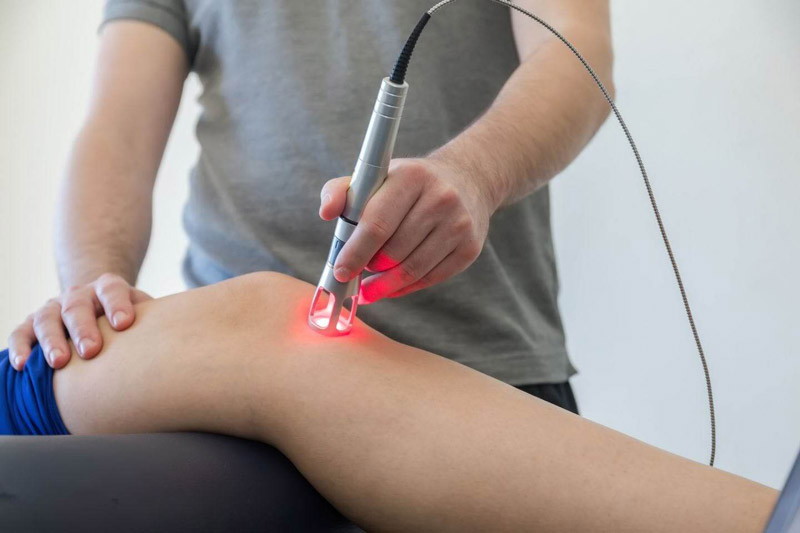
The light energy produced triggers cell regeneration, thereby boosting the healing process. But you should know that while it is a non-invasive procedure, you will have to make several appointments with the pain management doctors in Brooklyn, New York before you can finally see the results. It is only a temporary solution, but it will help reduce the pain while your body heals.


